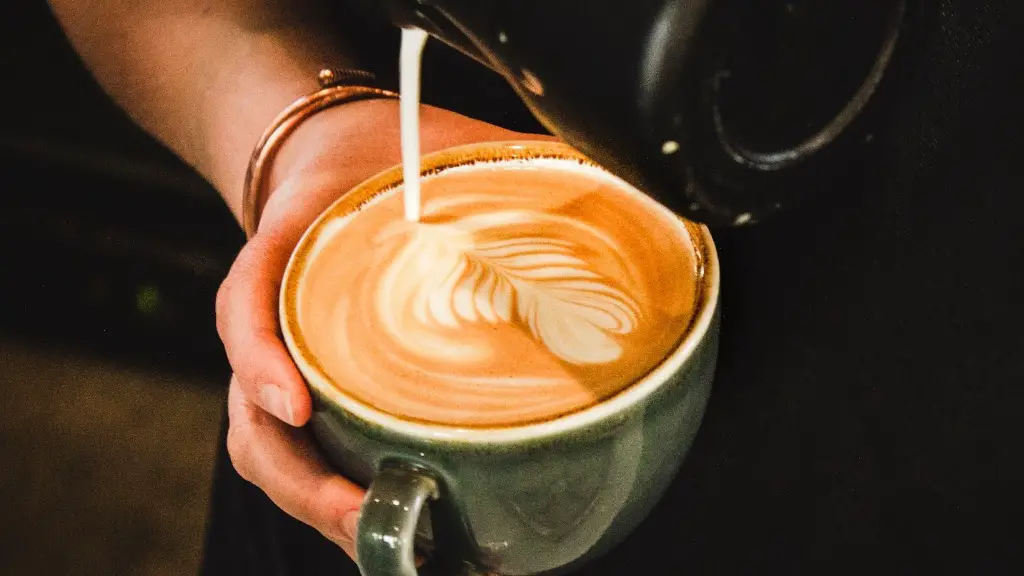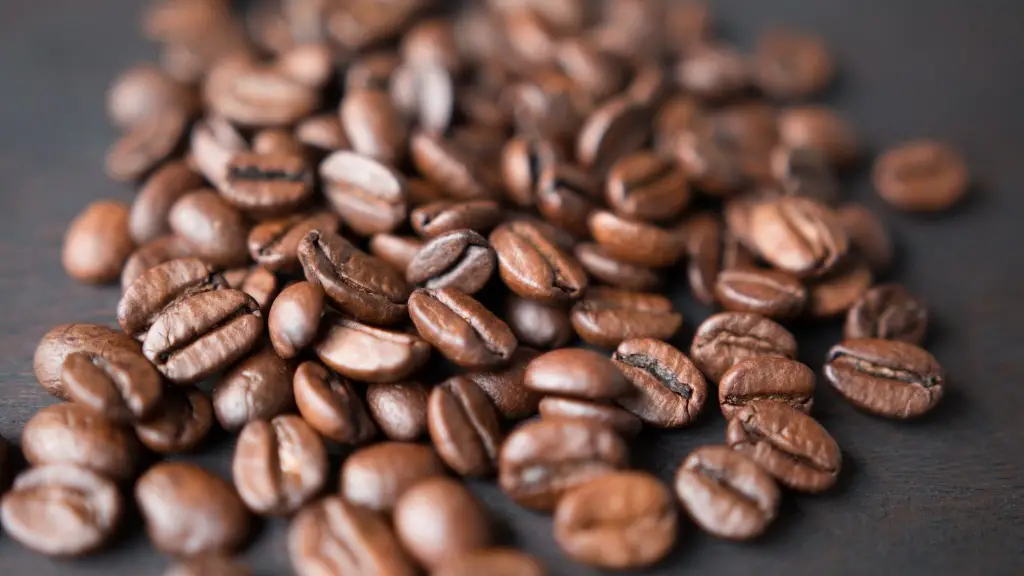The Main Article: Can Drinking Coffee Make You Tired?
Many argue that drinking coffee can help keep a person alert and awake while they are performing their daily activities. Yet, drinking coffee might also have a contradictory effect and make a person feel more tired afterwards. This conflicting reaction needs to be further investigated in order to better understand the effects that coffee has on our bodies.
Determining the effects of coffee on our bodies comes down to understanding the science behind the caffeine molecule. On its intake, days, caffeine binds with the adenosine receptors in our bodies, which in turn causes dopamine and serotonin to be released. This then triggers a chain reaction that enhances our alertness and causes us to feel energised.
However, there are certain risks associated with drinking coffee. Over-consumption of coffee can lead to a decrease in mental clarity and can make us feel fatigued. Unfortunately, this effect is cumulative as excessive coffee intake leads to decreased sensitivity to its stimulant effects, which results in experiencing tiredness and fatigue rather than increased focus and alertness.
In addition to over-consumption, when and how a person consumes coffee can also contribute to feelings of tiredness. For instance, when coffee is consumed in the late hours of the day, the release of dopamine and serotonin can interrupt the body’s natural sleep cycle, making it difficult to fall asleep and contributing to overall fatigue.
Furthermore, other external factors should also be taken into consideration, such as the effects of stress and fatigue on the body prior to coffee consumption. If a person is already tired, it is likely that any amount of coffee would not help them in feeling more energised and alert.
It is also important to note that different people respond differently to coffee. An individual’s sensitivity to caffeine varies and certain medical conditions, such as anxiety and heart disease, could also be affected by coffee consumption. Thus, when determining whether coffee is the right choice, additional research and consideration needs to be taken into account.
In conclusion, while coffee consumption may have the potential to provide the body with a temporary boost of energy, drinking coffee can make a person more tired depending on the situation. Factors such as time of day, amount consumed, stress, and health should all be taken into consideration when determining the role of coffee in our lives.
Types Of Coffee Beverages That Make You Tired
Large coffee beverages such as an iced coffee mocha, for example, tend to contain high amounts of sugar, cream, and other added flavorings which can, in turn, worsen feelings of fatigue and sleepiness. Additionally, energy drinks are an example of a caffeine-infused beverage that can make you more tired. Not only do energy drinks contain extra sugar and flavoring, but their highly concentrated caffeine content means that too much can make you feel overwhelmed and potentially cause you to crash.
It is important to stay alert to how much caffeine you are consuming and read labels to determine exact amounts. Furthermore, understand that larger, more sugary coffee drinks have the potential to make us feel more tired and jittery once their effects wear off.
Coffee beans also vary in caffeine content. For instance, espresso beans contain more caffeine per weight than regular beans as well as more antioxidants. However, just because espresso beans have more caffeine does not mean they are the best option. In fact, while they can give you a boost of energy, they may also have the potential to make you feel more tired once their effects wear off.
Finally, keep in mind that your caffeine intake is most important when drinking coffee beverages. Too much caffeine can lead to feelings of tiredness, instead of the desired boost of energy.
Foods That Counteract Caffeine Fatigue
In order to counteract caffeinated beverages that make you tired, certain foods can be consumed or added to your coffee. Eating a banana, for example, can be a great way to counteract the effects of caffeine and boost your energy levels. The high amounts of potassium, vitamins, and proteins in a banana can put a person in the right frame of mind to focus on their tasks at hand.
Furthermore, oatmeal is a great way to boost energy levels because of its rich fiber and carbohydrate content. If oatmeal is consumed alongside a caffeinated beverage, it can help to balance out the effects of caffeine as well as provide the body with the sustenance it needs to focus and stay alert.
Eggs are also a great way to help counteract the effects of caffeine induced fatigue. Eggs have a high amount of selenium, an essential nutrient which is essential for maintaining healthy energy levels. In particular, selenium has been known to play a crucial role in preventing fatigue, enhancing focus, and boosting energy levels.
Finally, certain herbs, such as Ginseng and Ginkgo, can also be powerful sources of energy. While these herbs should not be consumed in high amounts, they do have the potential to counteract the effects of caffeine and provide the body and mind with long-lasting energy and alertness.
Beverages That Don’t Make You Tired
When consumed in moderation, certain non-caffeinated beverages can provide the body with a sustained boost of energy. Green tea, for instance, is a great healthy alternative to coffee. Green tea contains a small amount of caffeine, but it also contains an antioxidant called EGCG which can boost one’s energy levels without the same caffeine-related side effects.
Another beverage that can provide a boost of energy without the same potential for fatigue as caffeinated beverages, are smoothies. By adding ingredients such as oats and nut butter, smoothies are a great way to provide the body with long-lasting energy and alertness. Additionally, adding certain superfoods to your smoothies, such as blueberries or spinach, can help to boost the overall nutritional value of the beverage and leave you feeling energised and focused.
Finally, water is a great way to get an instant boost of energy. Our bodies tend to be dehydrated prior to any caffeine consumption, and thirst can be a cause of fatigue and lack of focus. Therefore, drinking an adequate amount of water is an important way to stay alert and focused throughout the day.
Effects Of Coffee Over Time
Similarly important to understanding how coffee affects us in the present is understanding how coffee affects us over time. It is suggested that coffee should not be viewed as an ongoing solution to energy and alertness issues, as it can lead to dependency and fatigue.
In addition, regular consumption of coffee can lead to high blood pressure, difficulty sleeping, and restlessness. Therefore, introducing coffee to the daily routine should be done in moderation, as too much consumption can have an adverse effect on one’s overall health.
External factors such as stress and lack of exercise can also be detrimental in the long run. If caffeine is used to excess, especially during times of stress or fatigue, it can have an adverse effect and make us feel more tired and less alert. Therefore, introducing other methods to combat fatigue, such as exercise and relaxation, can be more beneficial in the long run.
Finally, if other methods to increase energy and alertness fail, speaking with a doctor is always a viable option. Depending on the situation and individual, a doctor or physician can give advice on how to best manage fatigue and alertness.
Age-Related Effects Of Coffee Consumption
Finally, age related effects of coffee consumption should also be taken into consideration. Caffeine can have differing effects depending on an individual’s age. For instance, the caffeine content of coffee can help teenagers to focus on their studies, however, for older adults, it can make them feel more tired. It is suggested that older adults should opt for lower caffeine options, such as decaffeinated coffee, tea, or herbal alternatives.
Similarly, caffeine sensitivity also varies depending on age. Teenagers, for example, may be able to consume more coffee than older adults without feeling its effects as much, however, this is not to say that teenagers should consume high amounts of caffeine. Every individual is different, and it is important to take individual sensitivities into consideration when determining our caffeine intake.
Finally, excessive amounts of coffee can lead to dependency and fatigue over time regardless of age. Older adults, in particular, should be aware of potential medical risks associated with high caffeine intake. Therefore, it is important to consult a doctor before consuming coffee if you are an older adult.





